Mathematics
In Shankhill Church of England Primary School, our carefully planned and progressive curriculum is designed with the target of all children mastering mathematics. Ensuring they will become confident, creative and enthusiastic mathematicians, who are ready for their time after Shankhill.
We will ensure that our children reach these ambitions by making sure they meet the National Curriculum expectations, to:
- become fluent in the fundamentals of mathematics, through varied and fluent practice with increasingly complex problems over time, so that pupils develop conceptual understanding and the ability to recall knowledge rapidly and accurately,
- reason mathematically by following a line of enquiry, conjecturing relationships and generalisations, and developing an argument, justification or proof using mathematical language,
- solve problems by applying their mathematics to a variety of routine and non-routine problems with increasing sophistication, including breaking down problems into a series of smaller steps and persevering in seeking solutions.
In Shankhill School, we follow the National Curriculum and use a mastery approach to Mathematics using resources from White Rose Maths Hub to support teachers in delivering this approach. In the early years, we follow Shankhill’s Development Matters (2021) to ensure the Early Years objectives are met and children are taught the prerequisite skills for mathematics in the National Curriculum. (This document includes enhancements by combining aspects from both DM & Birthto5.) We have worked with the North North West Maths Hub Mastery workgroup and also, took part in the NCTEM's 'mastering number' project in Early Years and Key stage 1. New concepts are introduced using a ‘Concrete, Pictorial and Abstract’ approach; enabling all children to experience hands-on learning when discovering new mathematical topics.
White Rose Maths

More information to follow ...
Teaching Mathematics in Early Years
In our Early Years, children are given the opportunity to develop their understanding of number, shape, space and measure through a combination of child initiated, adult led and supported experiences in the moment learning. This includes a range of play provocations, which promote curiosity both independently, and are supported by teachers as play partners, where there is plenty of scope for exploration. Maths is also emphasised in all aspects of the daily routine e.g. snack time/lining up etc. Maths through real life and meaningful experiences, using practical hands on resources both inside and outside is key in Early Years.
Teaching Mathematics in KS1 and KS2
Within KS1, the Early Years approach is built upon as we move to more formal learning. Children continue to have daily Mastering Number sessions to ensure a solid understanding of number. Within taught lessons, children follow our six-part learning structure that continues into KS2.
- Connect - Each lesson begins with Flashback Four, where children are asked to recall previous learning in order to ensure that it is within their long term memory. The content of this deliberate interleaved, spaced and retrieval practice can be connected to the new learning we are beginning in the next part of the lesson (if there is a link).
- Explain – New vocabulary, knowledge and skills are taught explicitly.
- Example - Teachers then teach new concepts whilst ensuring any misconceptions are addressed. Teachers use concrete – pictorial – abstract methods to demonstrate this new learning.
- Attempt - The class will then attempt examples together and independently, receiving instant feedback both times, to help them progress.
- Apply - Then children will complete their own work, based on developing fluency of the new concept in a range of different representations.
- Challenge - Children will then have the opportunity for their understanding to be deepened through reasoning, problem solving or challenges. Planned challenges include discussions and debates about True or False statements.



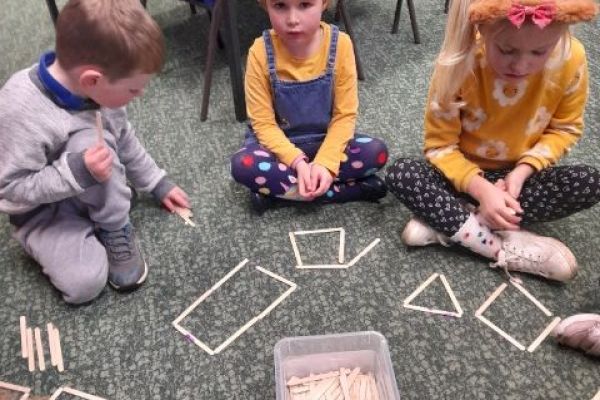
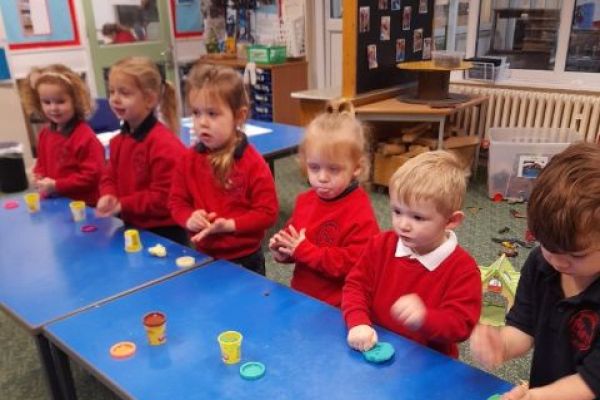
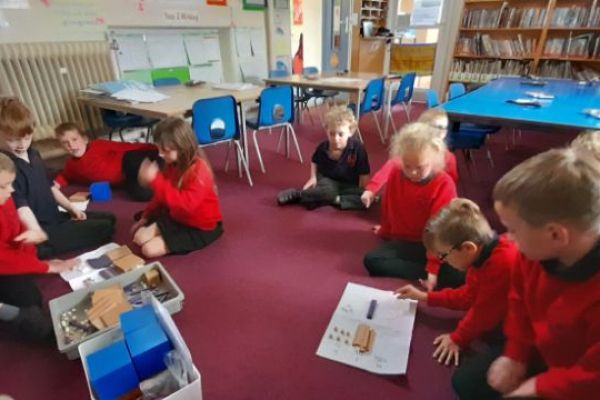
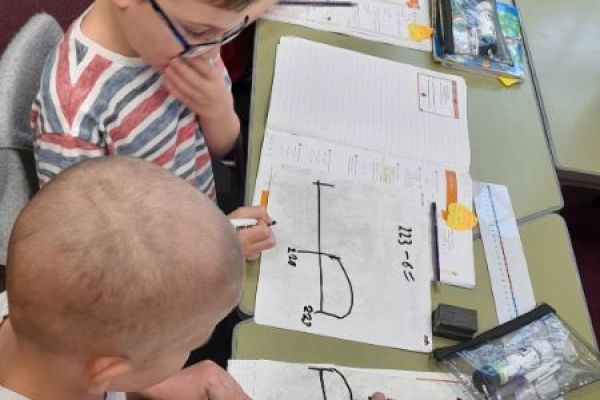
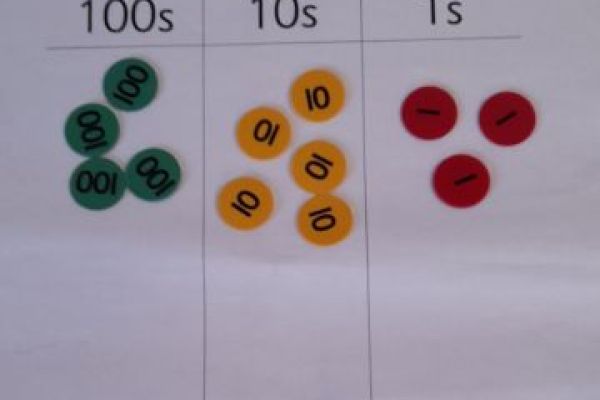
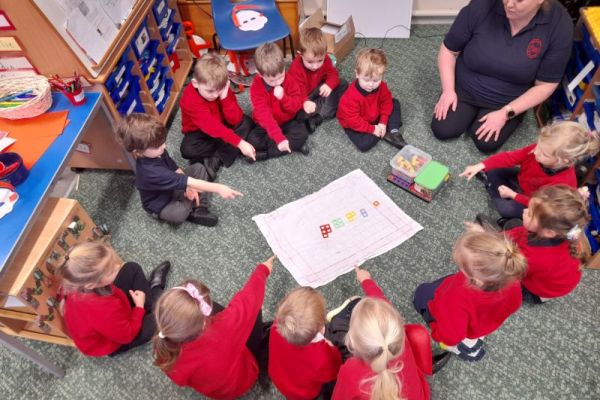
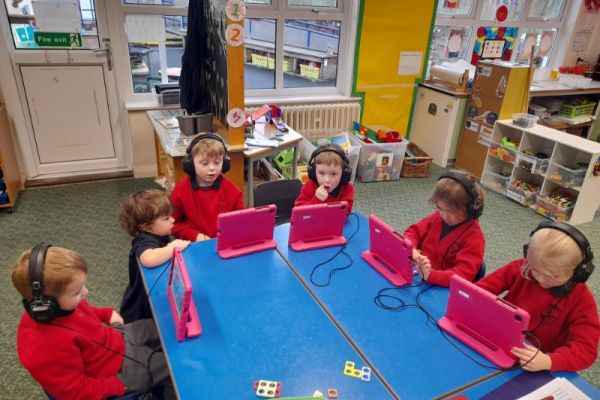
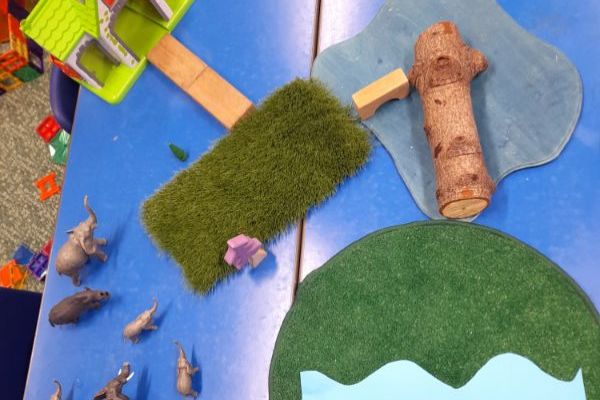
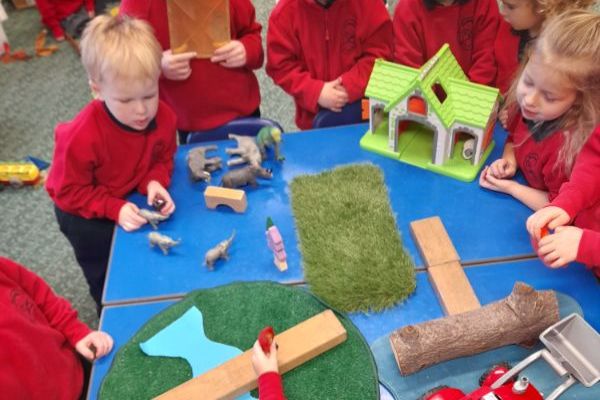
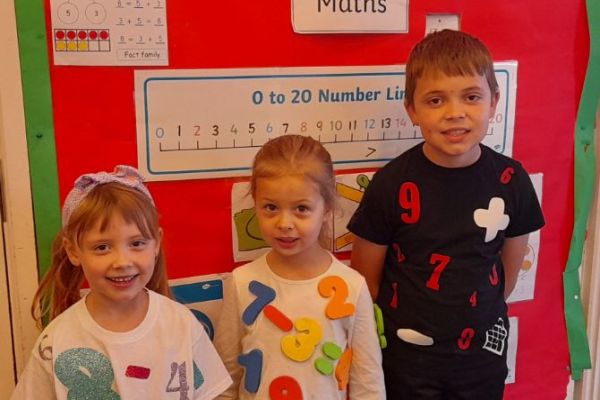
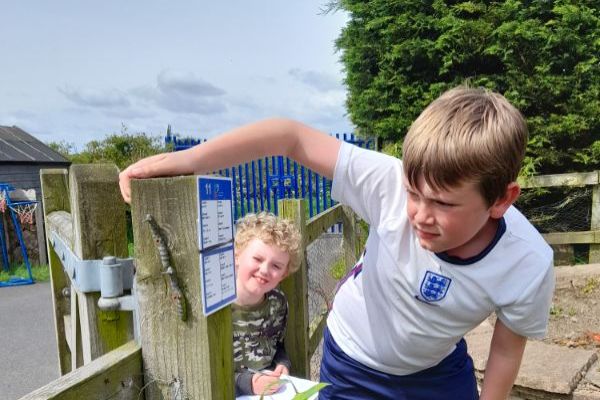
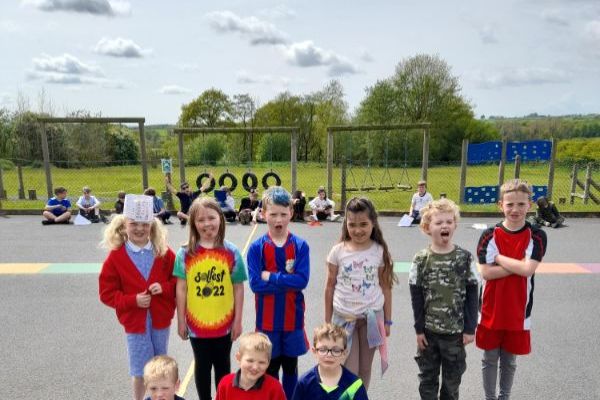
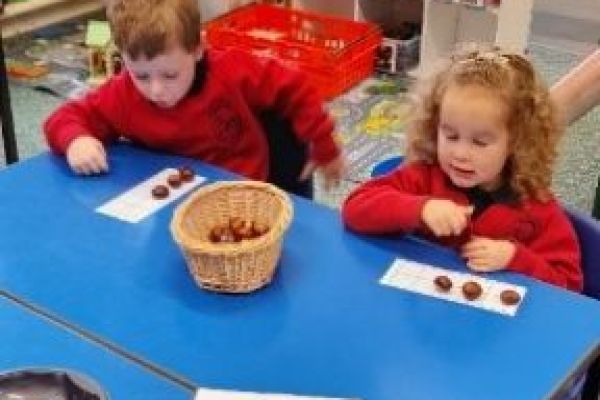
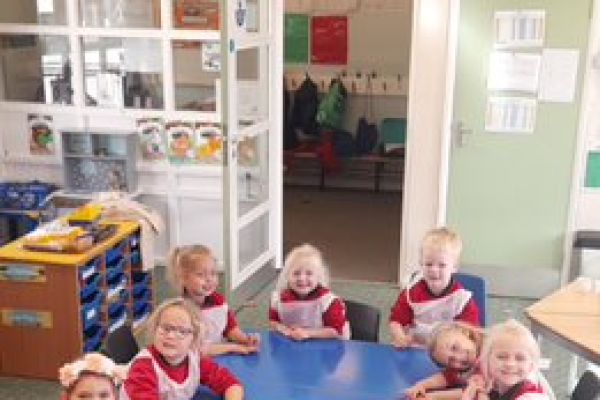
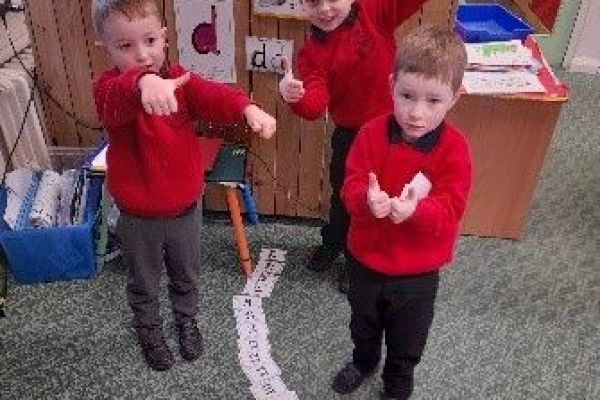
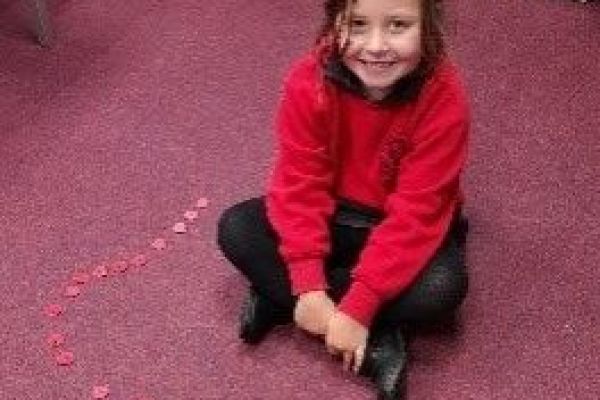
 Maths in Early Years
Maths in Early Years